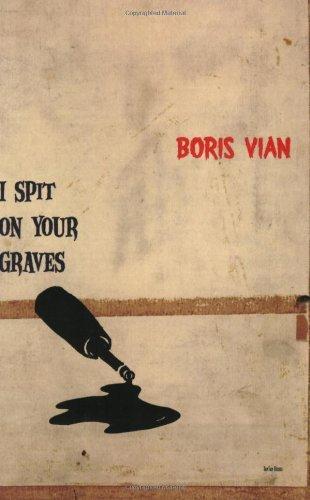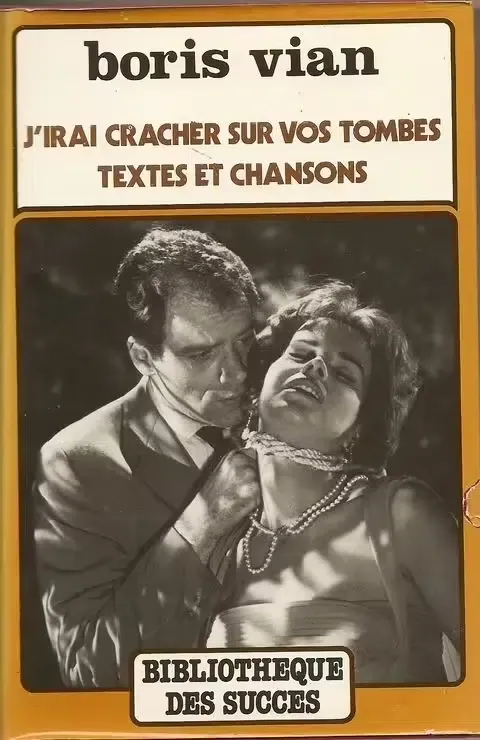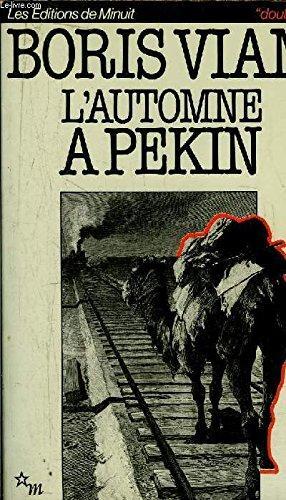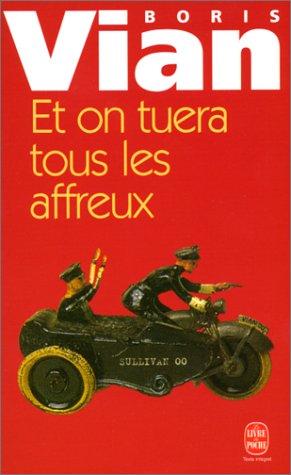Boris Vian (French: [bɔʁis vjɑ̃]; 10 March 1920 – 23 June 1959) was a French polymath: writer, poet, musician, singer, translator, critic, actor, inventor and engineer who is primarily remembered for his novels. Those published under the pseudonym Vernon Sullivan were bizarre parodies of criminal fiction, highly controversial at the time of their release due to their unconventional outlook. Vian's other fiction, published under his real name, featured a highly individual writing style with numerous made-up words, subtle wordplay and surrealistic plots. His novel L'Écume des jours (literally: "The Foam of Days") is the best known of these works and one of the few translated into English, under the title of Froth on the Daydream. Vian was an important influence on the French jazz scene. He served as liaison for Hoagy Carmichael, Duke Ellington and Miles Davis in Paris, wrote for several French jazz-reviews (Le Jazz Hot, Paris Jazz) and published numerous articles dealing with jazz both in the United States and in France. His own music and songs enjoyed popularity during his lifetime, particularly the anti-war song "Le Déserteur" (The Deserter).
Boris Vian
Informations sur l’auteur ou l’autrice
- Pseudonymes :
-
ボリス ヴィアン, בוריס ווין, Vernon Sullivan, et 64 autres
Барыс Віян, V. Sullivan, Борис Віан, Բորիս Վիան, Boriso Viana, Joëlle Du Beausset, Μπορίς Βιάν, Салливан, .. Vian-Sullivan, Claude Varnier, S Culape, Borian Vian, ბორის ვიანი, Josèfe Pignerole, Boris Vijan, בוריס וויין, ボリス・ヴィアン, Sullivan, Mporís Vián, Boris Paul Vian, Aimé Damour, بوریس ویان, Baolisi Weiang, Bison Duravi, Boris Vian, Gérard Dunoyer, Ravi, Anna Tof, Michel Delaroche, Amélie de Lambineuse, Vernon Sinclair, Brisavion, Adolphe Schmürz, בוריס וין, Andy Blackshick, Борис Вијан, فرنون سوليفان،, B. Vian, 보리스 비앙, Gédéon Molle, Б Виан, Виан, Борис Виан, Xavier Clarke, S. Culape, Jules Dupont, Eugène Minoux, Otto Link, Vian, Boriss Vians, בוריס ויאן, 보리스비앙, Onuphre Hirondelle, بۆریس ڤیان, Bison Ravi, Baron Visi, Lydio Sincrazi, Hugo Hachebuisson, 鮑希斯·維昂, Zéphirin Hanvélo, Fanaton, Gédéon Mauve, Odile Legrillon, Anna Tof de Raspail - Naissance :
- 9 mars 1920
- Décès :
- 22 juin 1959
Liens externes
Boris Vian (French: [bɔʁis vjɑ̃]; 10 March 1920 – 23 June 1959) was a French polymath: writer, poet, musician, singer, translator, critic, actor, inventor and engineer who is primarily remembered for his novels. Those published under the pseudonym Vernon Sullivan were bizarre parodies of criminal fiction, highly controversial at the time of their release due to their unconventional outlook. Vian's other fiction, published under his real name, featured a highly individual writing style with numerous made-up words, subtle wordplay and surrealistic plots. His novel L'Écume des jours (literally: "The Foam of Days") is the best known of these works and one of the few translated into English, under the title of Froth on the Daydream. Vian was an important influence on the French jazz scene. He served as liaison for Hoagy Carmichael, Duke Ellington and Miles Davis in Paris, wrote for several French jazz-reviews (Le Jazz Hot, Paris Jazz) and published numerous articles dealing with jazz both in the United States and in France. His own music and songs enjoyed popularity during his lifetime, particularly the anti-war song "Le Déserteur" (The Deserter).







